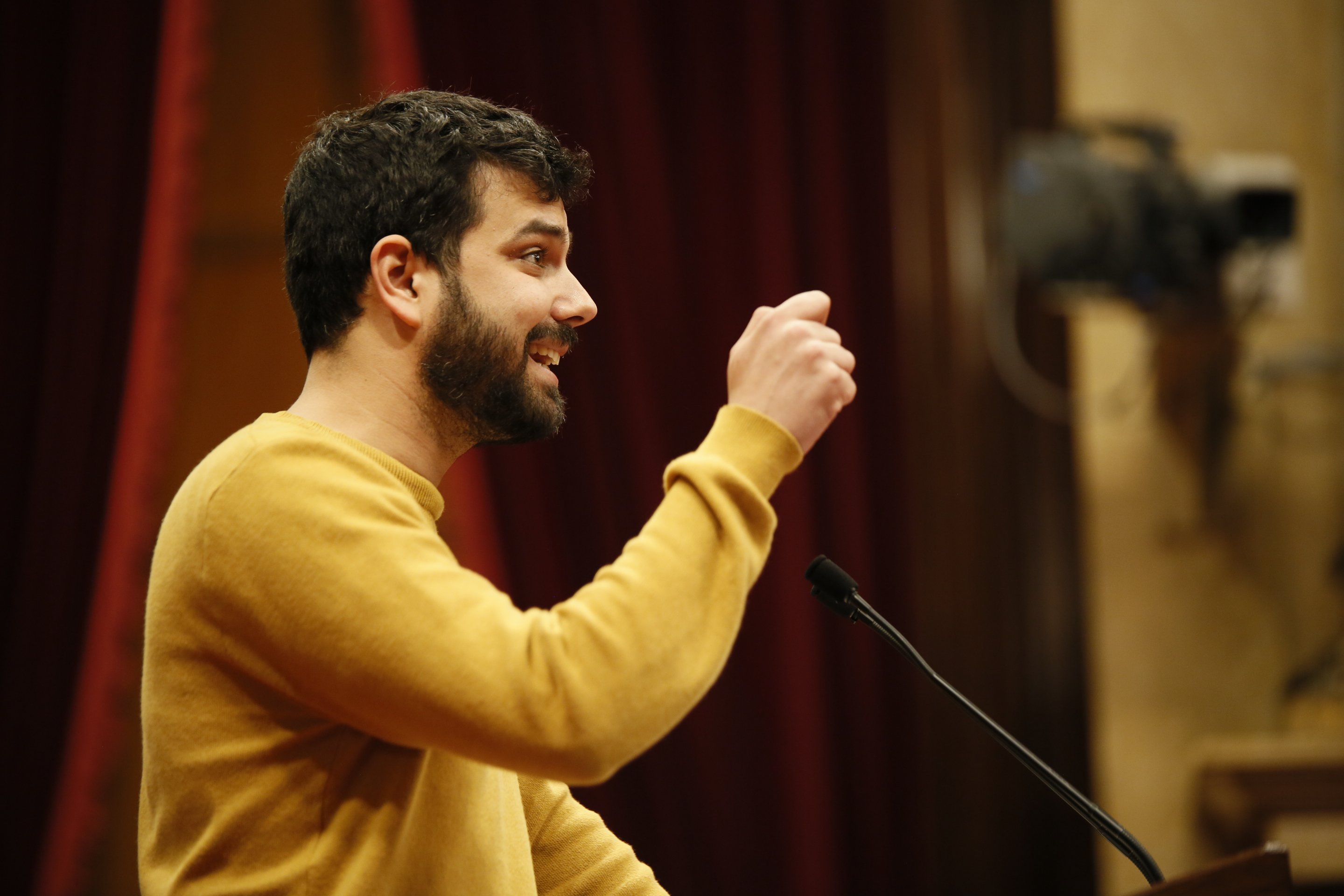The Catalan MP and parliamentary Bureau secretary Ruben Wagensberg, of the Republican Left (ERC), has moved to Switzerland to protect himself from the persecution by Spanish justice which has been impacting him in the Democratic Tsunami case. The ERC deputy, as radio station RAC1 reports, is currently in Geneva to consult with organizations and lawyers to help him in his case. Wagensberg, like president-in-exile Carles Puigdemont and the ERC general secretary, Marta Rovira, is being prosecuted for a terrorism offence within the Tsunami case, focused on the pro-independence protests at Barcelona airport and at the La Jonquera frontier with France in late 2019. In fact, the National Audience judge Manuel García-Castellón sent his case to the Supreme Court last November in order to be able to investigate it, since, together with Puigdemont, he has protection from lower court investigation due to his parliamentary status.
He underlines that he has not gone into exile
Wagensberg makes it clear that he is not in exile and explains that he made the decision to go to Switzerland at the beginning of January, after García-Castellón, judge of Spain's National Audience court, had reactivated all the investigative procedures against the pro-independence leaders accused in the case, in a move that coincided with the passage through the Spanish Congress of the bill to declare an amnesty for Catalan independence prosecutions. Since the Supreme Court has yet to give the green light to his prosecution, he is not yet under investigation. In fact, he has not even been subpoenaed to testify. Therefore, he could return to Spansih territory today without any legal impediment.
This situation has also caused him mental health problems. The news reports and the manoeuvres of the judge, referring to him and others continuously as if they were terrorists, have had an impact on him, according to RAC1. For weeks now, he has had episodes of severe anxiety that have impeded his ability to do his job. In fact, he is on medical leave from his positions as MP and fourth secretary of the Bureau of Parliament.
Wagensberg's role, according to the Civil Guard
The Spanish Civil Guard's report on the Democratic Tsunami case alleged that Wagensberg wrote communicados for the pro-independence protest platform under the alias of 'Konan'. In addition, it also focused on him for being "involved and concerned about the success of Tsunami's actions". The Civil Guard report also detailed that the ERC deputy "gave orders to high party officials", such as "Oriol Soler, alias Rigoberto".
Wagensberg has been a member of the Catalan Parliament since the elections of 2017, just after the application of Article 155. Since the events of Tsunami happened when he was already an MP, his case - if it comes to be heard - could be raised to the High Court of Catalonia (TSJC). However, García-Castellón, along with other judicial organizations, is pressuring to have the case transferred to the Supreme Court, where Carles Puigdemont would also have to investigated.
Gestures of support
The news has triggered an avalanche of demonstrations of support for the ERC deputy, in particular from political colleagues. The general secretary of ERC, Marta Rovira, closed ranks with Wagensberg and indicated that "the harshness of a criminal prosecution for terrorism without any basis is something I do not wish on anyone". The general secretary of Together for Catalonia (Junts), Jordi Turull, was concise: "You are not alone". As well, the Council of the Republic member and CUP deputy Carles Riera, among others, also showed solidarity with the ERC politician.
La duresa d'una acusació penal per terrorisme sense cap tipus de fonament no la desitjo a ningú. Tot el suport al company Rubén @wagensberg davant la persecució política. Ens mantindrem fermes lluitant pels drets de tothom. Amb la llei d'amnistia hem treure el conflicte polític…
— Marta Rovira Vergés🎗 (@martarovira) January 31, 2024
Tot el suport @wagensberg. No esteu sols!
— Jordi Turull i Negre (@jorditurull) January 31, 2024
La repressió no s’atura. La nostra tasca per combatre-la tampoc. https://t.co/OOw83Pmz4I
Expressem ferm suport a Ruben Wagensberg @wagensberg, diputat d'ERC, que ha hagut de marxar a Suïssa per la pressió del jutge García-Castellón pel cas Tsunami. És víctima de la persecució judicial per part de l'Estat espanyol. Un nou exemple que la repressió no s'atura i cal… pic.twitter.com/jMIFn5EZjh
— Consell de la República Catalana (@ConsellRep) January 31, 2024
Tot el suport a en Ruben Wagensberg, amic i company de la Mesa del Parlament de Catalunya, que està patint un assetjament judicial i mediàtic pel seu compromís independentista. Serem un Tsunami de solidaritat! https://t.co/RXtviUomaW
— Carles Riera (@carlesral) January 31, 2024
Wagensberg's departure, not related to Tuesday's amnesty bill vote
The Catalan vice-president, Laura Vilagrà, has made it clear that the departure to Switzerland of her colleague and ERC deputy "has nothing to do" with the setback for the amnesty bill this Tuesday in the Spanish Congress. Vilagrà preferred not to elaborate on Wagensberg's decision because it is a "very personal issue" about which she did not have enough information, but she noted that "many people are accused of terrorism and of very serious crimes", and for this reason she believed it was clear that the situation is very delicate, as she pointed out in an interview with Spanish public radio.

